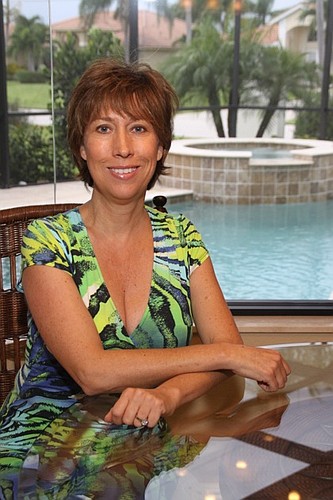- November 24, 2024
-
-
Loading

Loading

For nearly 30 years, Raymond Scalero built mid-priced homes in the Fort Myers area under the Oyster Bay Homes banner.
He was building and selling more than 100 homes a year until the housing collapse, when sales dropped to a mere half dozen. But while many builders went out of business, Scalero boldly built a model home in Cape Coral in 2008, the epicenter of the bust, and formed a new homebuilding company called Latitude 26 to target higher-end customers.
The courageous moves paid off. So far this year, Latitude 26 sold 24 new homes, double what it sold in all of 2010. “Everybody says the market has picked up this year, and we've seen it too,” says Robin Scalero, who runs the business with her husband.
How the Scaleros managed through the downturn is a lesson in adapting to rapidly changing and deteriorating conditions. Although they aren't alone, the Scaleros' survival shows that companies can make it through even the most drastic economic conditions.
The homebuilder's survival started long before the housing bust. Raymond Scalero never built speculative homes, he paid for all his equipment in cash and he didn't carry debt. “This is my third recession,” says the homebuilder.
When this recession hit, Scalero had to take painful steps to pare down his staff, letting go longtime employees. But he didn't have the debt and speculative-home inventory that sank so many of his rivals.
That was critical because banks were foreclosing on many owners of homes that had been built in the boom and reselling them for half the price. “We were competing against ourselves in the downturn,” Scalero says. “Our materials prices didn't fall and the city didn't lower impact fees.”
So Scalero and his wife Robin, whom he married in 2008, formed Latitude 26. As mariners know, Cape Coral and Fort Myers lie on that geographic latitude. Instead of competing with the market for foreclosures, Latitude 26 focused on higher-end homes with homes priced from $300,000 to $400,000.
They started building a model home in 2008 on Cape Coral Parkway. “Everyone thought we were crazy,” recalls Robin Scalero. “This is where the market collapsed.”
A former headhunter for the technology industry, Robin Scalero drummed up sales and queried prospective customers about what they wanted in a new home. She wasn't burdened with the traditional homebuilding ways, pushing Ray to build higher ceilings, fancier bathrooms and other modern touches that customers demanded. She also kept the model tidy. “I go out there and pull weeds and spray Roundup,” she laughs.
After five years of housing depression, consumers have adjusted to the new reality, the Scaleros say, explaining the 24 home sales so far this year. For example, retirees know they'll never get peak-of-the-market prices for their homes up north and they aren't waiting now.
Meanwhile, builders haven't constructed new homes in years, so the supply has dwindled. “The new construction literally shut down in 2007,” says Raymond Scalero. “When a buyer is looking for a relatively new home at a great price, they're not really there.”
Competition has dwindled too, though the builders who are left are equally as aggressive. “The builders who survived are all good,” says Robin Scalero. “You couldn't have survived without being at the top of your game.”